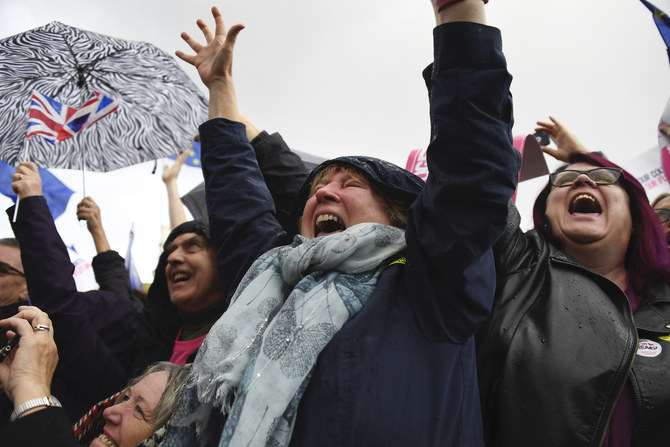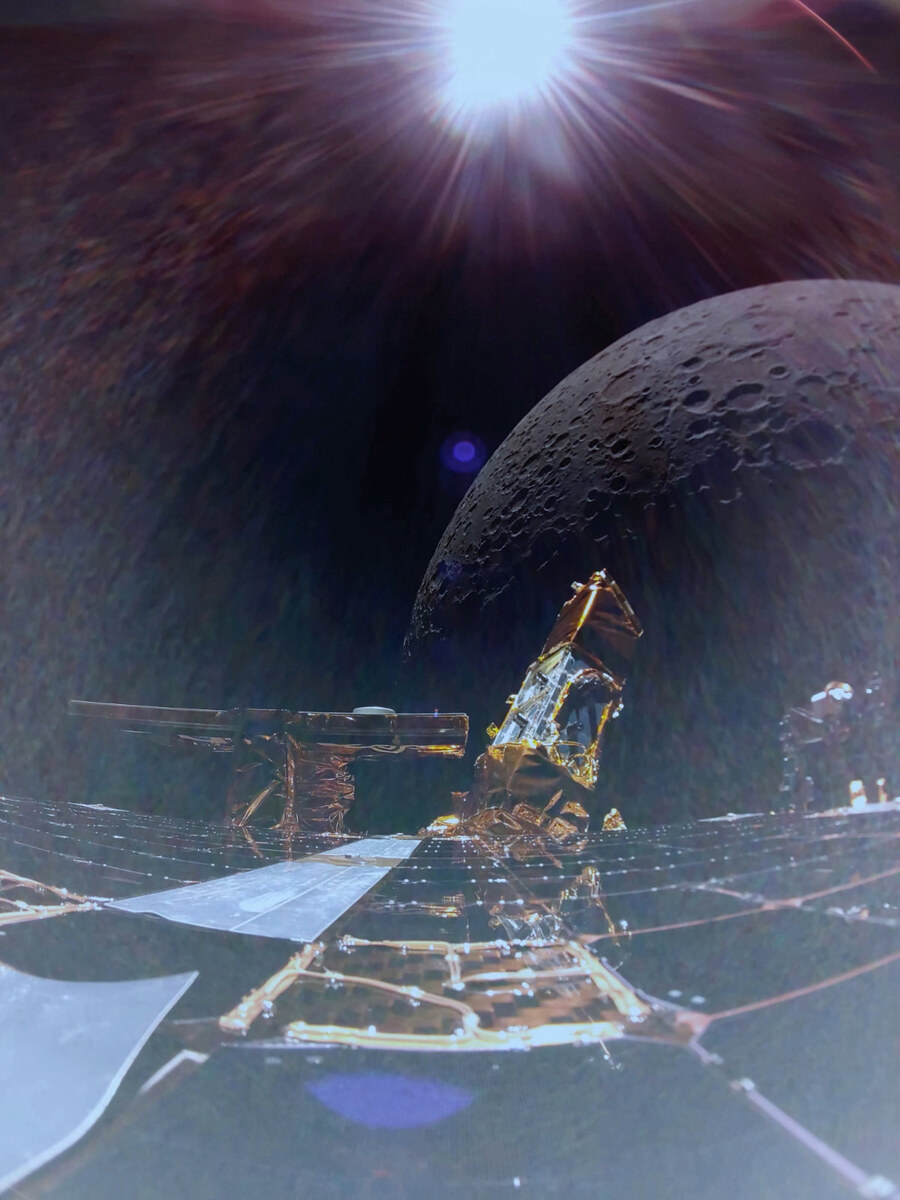LONDON: A defiant Boris Johnson said he would not negotiate a further delay to Britain’s departure from the EU after Parliament voted on Saturday to postpone a vote on his Brexit deal. Parliament voted 322 to 306 in favor of an amendment put forward by Oliver Letwin, a former Conservative Cabinet minister.
A sea of protesters was across the street from Parliament when word arrived that lawmakers in the House of Commons had forced another delay in Britain’s protracted Brexit battle. Parliament Square, awash in EU flags, erupted in cheers.
“Fantastic news,” said Paul Craddy, who had traveled from Bristol to join hundreds of thousands of people in a march calling for a “people’s vote” on Brexit. “We need another vote, we need another say now we know what the facts are,” he said.
According to legislation passed earlier, the vote means Johnson is obliged to write to the EU seeking a delay beyond Britain’s scheduled departure date of Oct. 31.
But Johnson has repeatedly vowed he will not do this and on Saturday he stuck to that line.
“I will not negotiate a delay with the EU and neither does the law compel me to do so,” Johnson told the Parliament.
HIGHLIGHTS
• Parliament voted 322 to 306 in favor of an amendment seeking postponement of a vote on Brexit deal.
• Many MPs are calling for a short ‘technical’ delay in Britain’s departure from the EU.
“I will tell our friends and colleagues in the EU exactly what I have told everyone else in the last 88 days that I have served as prime minister: That further delay would be bad for this country, bad for the European Union and bad for democracy.”
Johnson said he would put it to a vote on Tuesday. The latest delay was welcome news for those who poured into London to call for a new nationwide vote on the deal.
“Another chance for sanity and perhaps rationality to take over, rather than emotion,” filmmaker Jove Lorenty said as he stood outside Parliament. Organizers of the noisy but peaceful march said 1 million people took part. Police monitoring the protest tweeted: “We don’t provide estimates of numbers as it’s such an inexact science. However, it is fair to say it is now very busy throughout the procession route.”
The Letwin amendment proposed that a decision on whether to back a Brexit deal be deferred until all the legislation needed to implement it has been passed through the Parliament.
“My aim is to ensure that Boris’ deal succeeds,” Letwin said earlier. But he wanted “an insurance policy which prevents the UK from crashing out on Oct. 31 by mistake if something goes wrong during the passage of the implementing legislation.”
Three years after Britain voted 52-48 percent to leave the European project, Johnson struck a divorce deal with the bloc in Brussels on Thursday.

































